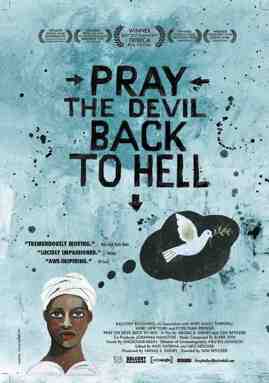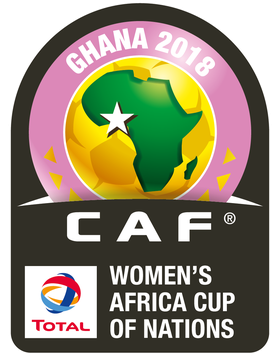Related Research Articles

Accra is the capital and largest city of Ghana, located on the southern coast at the Gulf of Guinea, which is part of the Atlantic Ocean. As of 2021 census, the Accra Metropolitan District, 20.4 km2 (7.9 sq mi), had a population of 284,124 inhabitants, and the larger Greater Accra Region, 3,245 km2 (1,253 sq mi), had a population of 5,455,692 inhabitants. In common usage, the name "Accra" often refers to the territory of the Accra Metropolitan District as it existed before 2008, when it covered 199.4 km2 (77.0 sq mi). This territory has since been split into 13 local government districts: 12 independent municipal districts and the reduced Accra Metropolitan District (20.4 km2), which is the only district within the capital to be granted city status. This territory of 199.4 km2 contained 1,782,150 inhabitants at the 2021 census, and serves as the capital of Ghana, while the district under the jurisdiction of the Accra Metropolitan Assembly proper (20.4 km2) is distinguished from the rest of the capital as the "City of Accra".

Ghana is a country of 28.21 million people and many native groups, such as:
Guy Warren of Ghana, also known as Kofi Ghanaba, was a Ghanaian musician, most notable as the inventor of Afro-jazz — "the reuniting of African-American jazz with its African roots" — and as a member of The Tempos, alongside E. T. Mensah. He also inspired musicians such as Fela Kuti. Warren's virtuosity on the African drums earned him the appellation "The Divine Drummer". At different stages of his life, he additionally worked as a journalist, DJ and broadcaster.

The Greater Accra Region has the smallest area of Ghana's 16 administrative regions, occupying a total land surface of 3,245 square kilometres. This is 1.4 per cent of the total land area of Ghana. It is the most populated region, with a population of 5,455,692 in 2021, accounting for 17.7 per cent of Ghana's total population.
The Ga-Dangbe, Ga-Dangme, Ga-Adangme or GaDangme are an ethnic group in Ghana, Togo and Benin. The Ga and Dangbe people are grouped respectively as part of the Ga–Dangme ethnolinguistic group. The Ga-Dangmes are one ethnic group that lives primarily in the Greater Accra region of Ghana. Ethnic Ga family names (surnames) include Nikoi, Amon, Kotey, Kotei, Adei, Adjei, Kutorkor, Oblitey, Lartey, Nortey, Aryee, Obodai, Oboshi, Torgbor, Torshii and Lante. The following are names derived from the ethnic Dangme and common among the Ningos Nartey, Tetteh, Kwei, Kweinor, Kwetey, Narteh, Narh, Dugbatey, Teye, Martey, Addo, Siaw, Saki, Amanor, Djangba. These are aligned to the ethnic Ga as well: Lomo, Lomotey, Tetteh, Ankrah, Tetteyfio, Laryea, Ayitey, Okai, Bortey, Quaye, Quaynor, Ashong, Kotei, Sowah, Odoi, Ablor, Adjetey, Dodoo, Darku and Quartey.

Efua Theodora Sutherland was a Ghanaian playwright, director, dramatist, children's author, poet, educationalist, researcher, child advocate, and cultural activist. Her works include the plays Foriwa (1962), Edufa (1967), and The Marriage of Anansewa (1975). She founded the Ghana Drama Studio, the Ghana Society of Writers, the Ghana Experimental Theatre, and a community project called the Kodzidan. As Ghana's earliest playwright-director, she was an influential figure in the development of modern Ghanaian theatre, and helped to introduce the study of African performance traditions at university level. She was also a pioneering African publisher, establishing the company Afram Publications in Accra in the 1970s.

Nana Addo Dankwa Akufo-Addo is a Ghanaian politician who has served as the president of Ghana since 2017. He previously served as Attorney General from 2001 to 2003 and as Minister for Foreign Affairs from 2003 to 2007 under the Kufuor-led administration.
Joseph Hanson Kwabena Nketia was a Ghanaian ethnomusicologist and composer. Considered Africa's premier musicologist, during his lifetime, he was called a "living legend" and "easily the most published and best known authority on African music and aesthetics in the world", with more than 200 publications and 80 musical compositions to his credit.
The Cinema of Niger began in the 1940s with the ethnographical documentary of French director Jean Rouch, before growing to become one of the most active national film cultures in Francophone Africa in the 1960s-70s with the work of filmmakers such as Oumarou Ganda, Moustapha Alassane and Gatta Abdourahamne. The industry has slowed somewhat since the 1980s, though films continue to be made in the country, with notable directors of recent decades including Mahamane Bakabe, Inoussa Ousseini, Mariama Hima, Moustapha Diop and Rahmatou Keïta. Unlike neighbouring Nigeria, with its thriving Hausa and English-language film industries, most Nigerien films are made in French with Francophone countries as their major market, whilst action and light entertainment films from Nigeria or dubbed western films fill most Nigerien theatres.

Jubilee House, is the presidential palace in Accra that serves as a residence and office to the President of Ghana. Jubilee House is built on the site of a building that was constructed and used for administrative purposes by the British Gold Coast Government. The previous seat of government of Ghana was Osu Castle. It was renamed Golden Jubilee House by President Nana Addo Dankwa Akufo-Addo on 29 March 2018 to coincide with the 50th year of Ghana's independence.It has since returned to be known as Jubilee House. It has previously been known as The Flagstaff House.
Nungua is a town in Krowor Municipal District in the Greater Accra Region of southeastern Ghana near the coast. Nungua is the eighteenth most populous settlement in Ghana, in terms of population, with a population of 84,119 people.

Pray the Devil Back to Hell is a 2008 American documentary film directed by Gini Reticker and produced by Abigail Disney. The film premiered at the 2008 Tribeca Film Festival, where it won the award for Best Documentary. The film had its theatrical release in New York City on November 7, 2008. It had cumulative gross worldwide of $90,066.
The Ghana Rugby Association, operating as the Ghana Rugby Football Union, is the governing body for rugby union in Ghana. It is a member of Rugby Africa and a full member of World Rugby since 2017.

Akosua Adoma Owusu is a Ghanaian-American filmmaker and producer. Her films explore the colliding identities of black immigrants in America through multiple forms ranging from cinematic essays to experimental narratives to reconstructed Black popular media. Interpreting the notion of "double consciousness," coined by sociologist and civil rights activist W. E. B. Du Bois, Owusu aims to create a third cinematic space or consciousness. In her work, feminism, queerness, and African identities interact in African, white American, and black American cultural spaces.

The Chale Wote Street Art Festival also known as Chale Wote, is an annual street festival in Accra, Ghana. The festival targets exchanges between scores of local and international artists and patrons. "Wote" in the Ga language means "let's go".

Coz Ov Moni - The First Pidgen Musical Film in the World is a 2010 musical film produced by the FOKN BOIS and directed by independent Ghanaian filmmaker King Luu.

Herbert Amponsah Mensah is a Ghanaian businessman, sports administrator, and the President of World Rugby’s African association, Rugby Africa, the governing body of Rugby in Africa.

Cinema of Ghana also known as the Ghana Film Industry nicknamed Ghallywood, began when early film making was first introduced to the British colony of Gold Coast in 1923. At the time only affluent people could see the films, especially the colonial master of Gold Coast. In the 1950s, film making in Ghana began to increase. Cinemas were the primary venue for watching films until home video became more popular. The movie industry has no official name as yet since consultations and engagements with stakeholders has been ongoing when a petition was sent to the Ministry of Tourism, Arts and Culture which suspended the use of the name Black Star Films.

The 2018 Women's Africa Cup of Nations was the 13th edition of the Africa Women Cup of Nations, the biennial international football championship organised by the Confederation of African Football (CAF) for the women's national teams of Africa. The tournament was held in Ghana, from 17 November to 1 December 2018.
NWFF can stand for:
References
- ↑ John Elliot Hagan Ndiva Women’s Film Festival launched Archived 2018-11-23 at the Wayback Machine , The Finder, 27 June 2017.
- 1 2 Commonwealth endorses Ndiva Women's Film Festival Archived 2018-11-23 at the Wayback Machine , myjoyonline.com, 28 September 2017.
- ↑ "Ndiva Women's Film Festival - Film Screenings".
- ↑ Ellerson, Beti (October 30, 2018). "AFRICAN WOMEN IN CINEMA BLOG: Ndiva Women's Film Festival 2018 – Official Selection - Accra, Ghana - 1-3 November". Archived from the original on November 3, 2018. Retrieved November 1, 2018.